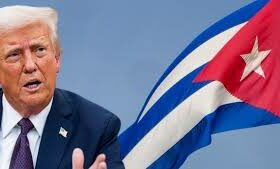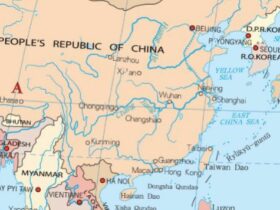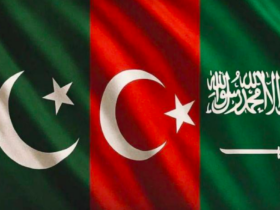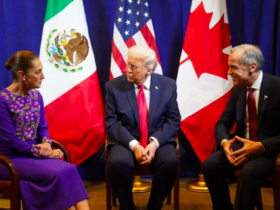The Egyptian reaction to the recent and mutual escalation between the Israeli occupation and the Palestinian resistance, led by Hamas, surprised all observers.
Cairo was more neutral during the war against Gaza in 2009 and 2014, but this time, it became relatively biased towards the resistance.
This transformation represents one of the several transformations that the Egyptian foreign policy has witnessed recently, which has included, among other things, reconciliation with Qatar and an openness to starting a dialogue with Turkey.
It is not possible to read these transformations in the Egyptian foreign policy away from the changes that the region witnessed during the past year, which Cairo saw as serving Israel’s goals and projects.
A break with Hamas
With the overthrow of the Muslim Brotherhood from the rule of Egypt in 2013 and President Abdel Fattah al-Sisi coming to power, the Egyptian administration dealt with Hamas as a terrorist group involved in the Sinai attacks, especially in light of the movement’s declared affiliation with the group.
The Egyptian General Intelligence Service, during the era of former President Hosni Mubarak, used to treat the movement as one of the Palestinian resistance factions with which dialogue and coordination must be made, regardless of its ideology.
However, this view changed in favor of that of the Military Intelligence Service to which Sisi belonged during the outbreak of the January 25, 2011 revolution.
The Military Intelligence Service saw the necessity of severing ties with Hamas, which was met with objections within the General Intelligence Service. As a result, members of the apparatus were toppled, to be replaced by hard-liners towards the movement.
Among these changes, Major General Mohamed Farid Al-Tohamy, who is known as the architect of the severing of ties with the movement, was appointed. However, a year later, Major General Khaled Fawzy was appointed, who oversaw the balancing of relations with Hamas.
However, that did not last long with Abbas Kamel assuming the head of the intelligence service. He is one of the most important hawks in the Egyptian administration regarding the Palestinian movement.
Radical changes
While there was Egyptian reluctance during the past years to define an ideal way to deal with Hamas, the movement was witnessing radical changes within it that led to Yahya Sinwar taking over the leadership of Hamas in Gaza, succeeding Ismail Haniyeh.
Sinwar’s escalation was an important qualitative development, after this position remained in the hands of those with a political background in the movement.
Although many described Sinwar as a hardliner, his political pragmatism made him gain Cairo’s trust during the meetings that took place in Egypt in 2017 with the aim of Palestinian reconciliation, to the extent that a senior official in the Egyptian General Intelligence Service described him at the time a responsible person.
Sinwar also led an implicit reconciliation with Egypt, which included the participation of Hamas and its security services in securing the border strip between Gaza and Sinai, and full security coordination with Cairo regarding the fight against ISIS in North Sinai and tracking its fugitive elements to the Gaza Strip.
Unexpected convergence
Apparently, the regional variables disturbing Egypt and the flexibility and pragmatism enjoyed by Hamas were strong factors in achieving unexpected convergence of some kind between the two parties.
Both sides need each other. Egypt is the only Arab country that has a border with the Gaza Strip, and it can offer a lot to the people of the Strip, whether in reconstruction or providing aid, or even political support through Cairo’s influence and contacts with Israel. The Rafah crossing is also the only lung of the Strip in light of the naval blockade imposed by the occupation on the Strip.
For all these reasons, Hamas realized that it needed to be very pragmatic in its relationship with Egypt.
The movement saw that Egypt leads a trend in the region that classifies the Muslim Brotherhood, to which Hamas belongs, as a terrorist group.
The movement found that this affiliation reduces its ability to maneuver in gaining support for it and its cause in the Arab world. Therefore, it redefined itself in the amendments to its charter in 2017, to present itself as a Palestinian resistance and liberation movement with an Islamic reference instead of clearly affirming it in the charter issued in 1988 as a wing of the Brotherhood Muslims.
This amendment was a real start to reset the relationship with Egypt, and to reduce the losses incurred by the resistance because of its support for the mother group following the revolutions of the Arab Spring.
Regional competition
On the other hand, although Egypt has diplomatic relations with Israel, the Egyptian regional influence is gaining greater strength by holding on to many threads in the Palestinian cause, at the heart of which is the resistance.
The Egyptian position was greatly damaged by the peace agreement concluded by the UAE and Israel in September 2020. Normalization is causing Egypt to lose the card that it has enjoyed for decades in the mediation between the Arab countries and Israel.
In addition, such an agreement harms the formula chosen by Egypt in dealing with Israel. Even though Egypt signed a peace treaty with Israel more than four decades ago, it was keeping in mind that Tel Aviv would remain a threat to its national security. Therefore, it was content with normalization at the official level, but it was encouraging one way or another to discredit any normalization on a popular level.
The UAE’s insistence on transferring normalization with Israel to the popular level was a factor threatening the Egyptian formula for normalization, through which Cairo maintained a cold and formal peace that facilitated control over many of the cards in the game.
It seemed that the intimate relations between Abu Dhabi and Tel Aviv were striking the interests of Cairo. The Egyptian administration was surprised that there were understandings between the two countries to revive the Eilat-Ashkelon pipeline project to transport Arab oil to Europe through the occupied territories, which would cause severe damage to the Suez Canal. It also essentially threatens the Egyptian “SUMED” line, which carries oil from the Gulf of Suez to the Mediterranean.
In light of strong competition from regional parties for the Egyptian role in dealing with the Palestinian issue, Cairo had to move in a different and pragmatic way to achieve its interests. The latest war on Gaza was its chance.
Battle without bullets
The Egyptian media and Egyptian diplomatic statements were clearly biased towards the Palestinian resistance. Cairo also worked to put forward a cease-fire initiative that included stipulating a halt to settlements and the demolition of Palestinian homes.
Egypt also facilitated the transfer of medical teams to the Gaza Strip to treat the wounded, and sent huge amounts of aid to the people of Gaza. It is now preparing for a major role in the reconstruction.
Cairo sees its support for the Palestinian resistance as an opportunity to target Israeli regional projects that harm its interests, including the “EastMed” project to export gas to Europe.
Egypt was surprised to be excluded twice by Israel, Greece and Cyprus during their signing of an agreement to transport gas to Europe, even though it alone owns two liquefaction stations to facilitate the transfer of exports. Thus, supporting Hamas meant that Egypt would obtain additional political advantages without firing a single shot, in light of the fact that the resistance’s missiles targeted Israeli gas platforms and energy projects.
New convictions
It is true that the Egyptian efforts succeeded in establishing a ceasefire between Hamas and Israel, but Cairo needs to make more efforts to expand its influence on this issue, which is at the core of its national security, to be greater than simply seizing opportunities provided by circumstances and accidents.
The Palestinian resistance must realize that there is no solution to its cause without Egypt. Therefore, any maneuvering in favor of other regional parties to scheming against the Egyptian regime will not bear fruit.
Recent years have proven that what brings Hamas and Egypt on one side is not only their mutual interests, but their common enemies as well.
Israel was not the only common enemy. Extremist organizations in the Sinai represented a common threat to both sides, as these organizations could easily move to Gaza. The Palestinian movement fears that, over time, it will turn into a force opposing it within the Gaza Strip.
Therefore, in order to gain Egypt’s trust and with the aim of eliminating these organizations, the movement pledged to work and cooperate with Cairo in controlling the movement of the border between Egypt and the Gaza Strip. This, in addition to the qualitative operations carried out by the Egyptian forces, played an important role in the recent state of calm in the Sinai Peninsula.
After years of indecision, mistrust and miscalculation, the two seem to have realized that they are both important to each other.

















Leave a Reply